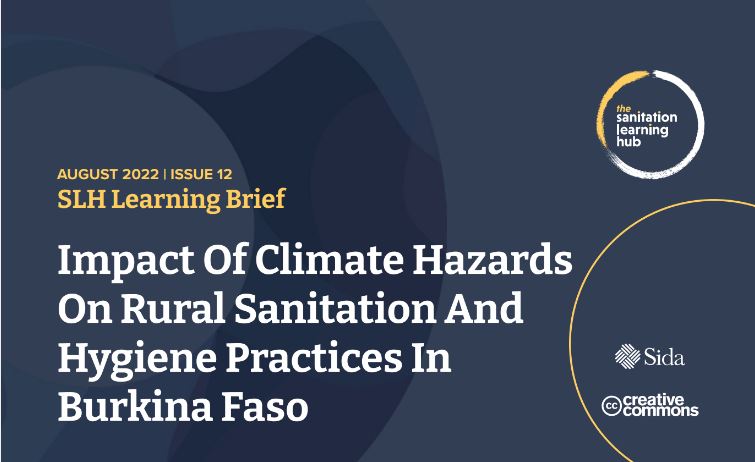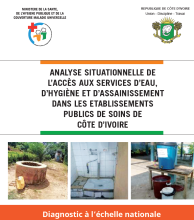Impact of Climate Hazards on Rural Sanitation and Hygiene Practices in Burkina Faso

The document discusses the impact of climate hazards on rural sanitation and hygiene practices in Burkina Faso. Here are the key takeaways: Research Objectives: The study aimed to understand the effects of climate hazards on rural sanitation and hygiene, test interventions for climate resilience, and facilitate learning for evidence-based programming.
Climate Challenges: Burkina Faso faces increased flooding, droughts, and temperature rises, affecting sanitation infrastructure and practices, with rural areas being particularly vulnerable.
Community Experiences: Participatory research revealed that heavy rainfall damages sanitation facilities, while droughts limit water availability for hygiene, leading to altered sanitation behaviors and increased open defecation.
Programming Implications: The findings suggest the need for climate-resilient sanitation programs that prioritize durable infrastructure, integrate climate risks, and support community adaptation strategies.
The document emphasizes the importance of addressing climate impacts on sanitation to ensure sustainable practices and improve community resilience in the face of environmental challenges.




